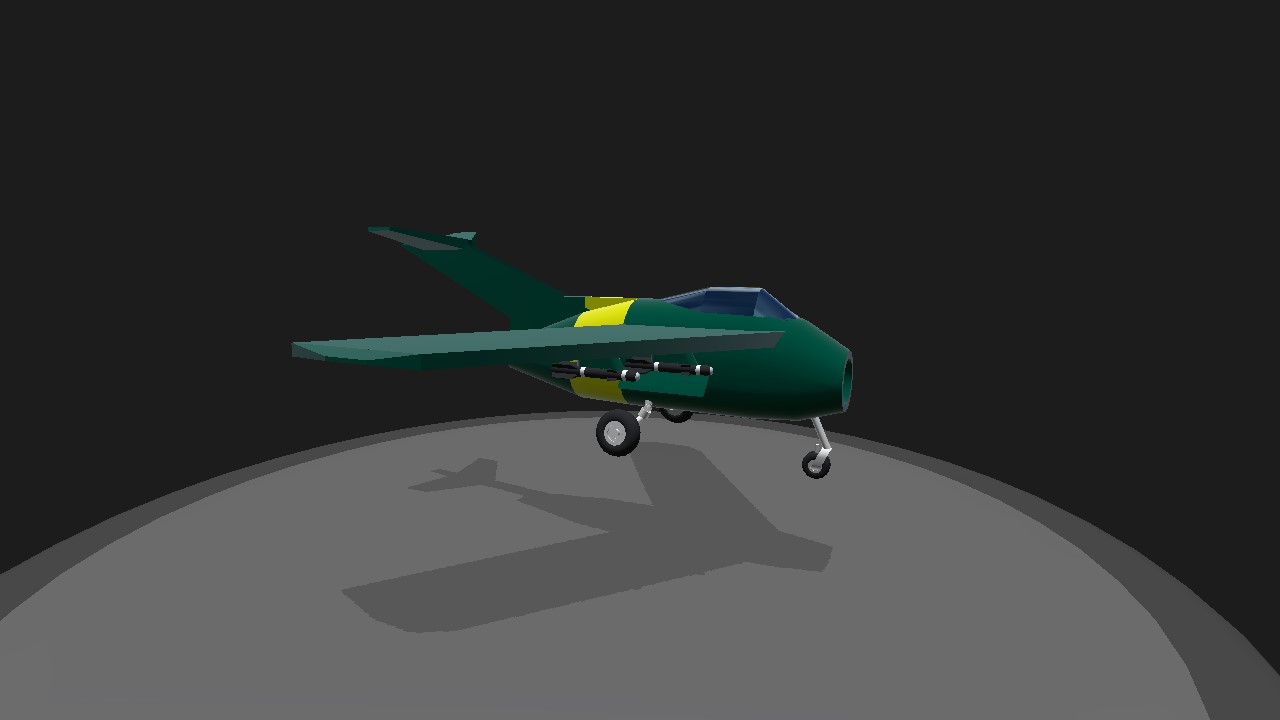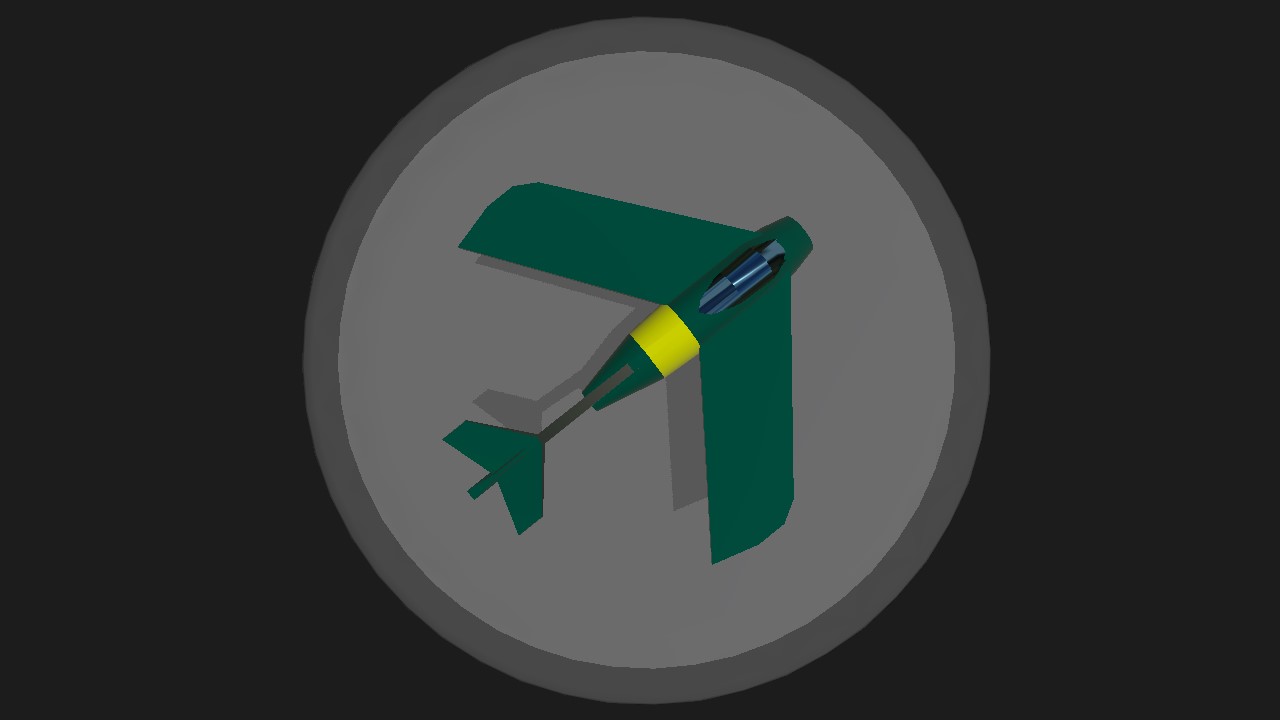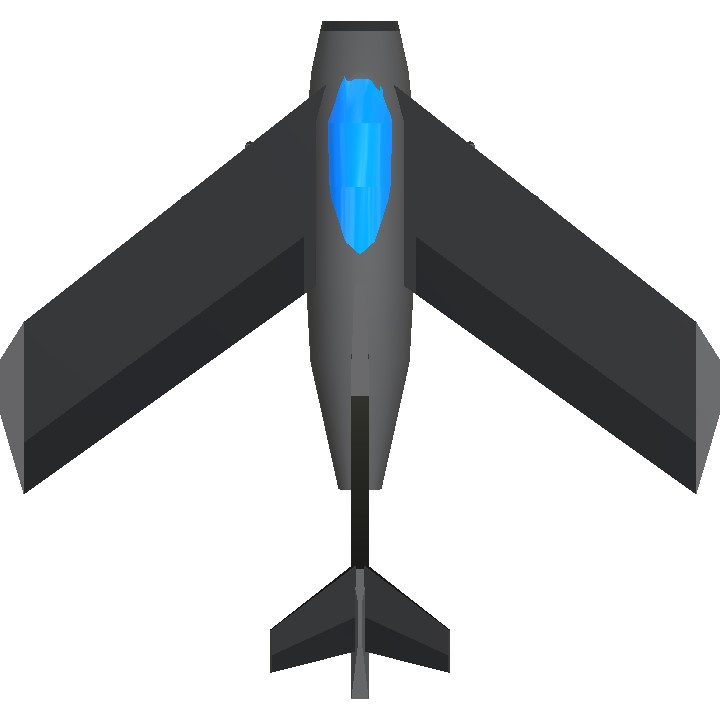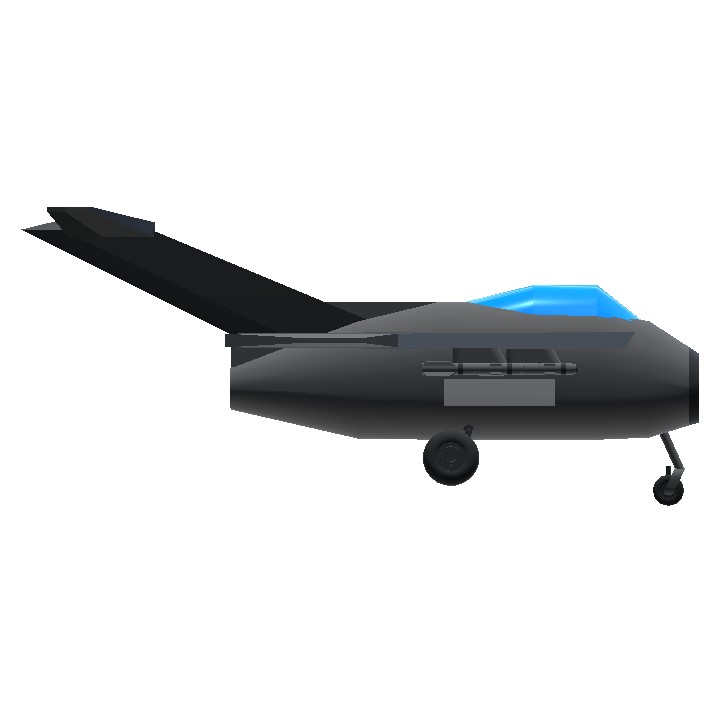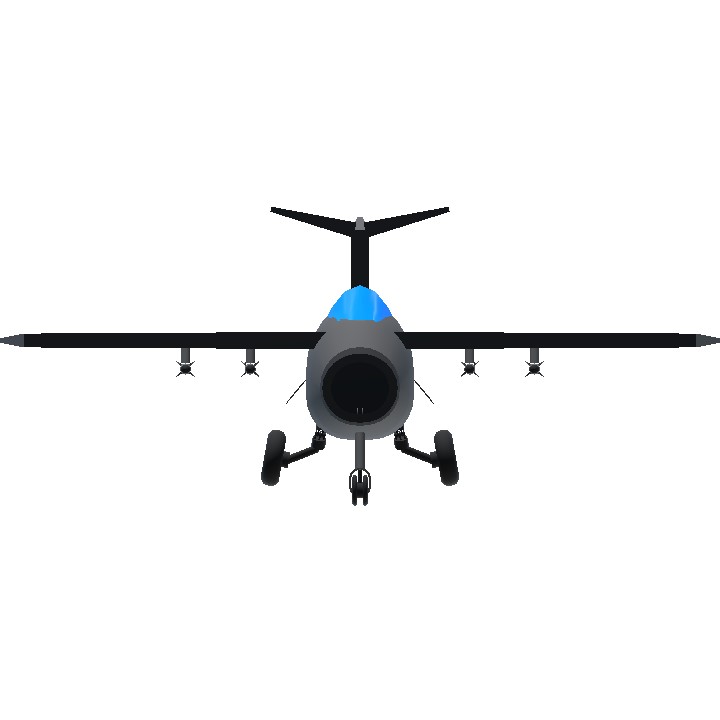"Fishbed Ancestor (?)~ "
Focke-Wulf Ta 183 Huckebein
- About the aircraft
In early 1944, the Reich Air Ministry (RLM, for Reichsluftfahrtministerium) became aware of Allied jet developments, and were particularly concerned that they might have to face the Gloster Meteor (and so later what-if against P-80 Shooting Star, MiG-9 Fargo, and DH Vampire(?)) over the continent. In response, they instituted the Emergency Fighter Program which took effect on July 3, 1944, ending production of most bomber and multi-role aircraft in favour of fighters, especially jet fighters. Additionally, they accelerated the development of experimental designs that would guarantee a performance edge over the Allied designs, designs that would replace the first German jet fighters, the Messerschmitt Me 262 Schwalbe and Heinkel He 162 Spatz.
The result was a series of advanced designs, some using swept wings for improved transonic performance, others instead using the tailless design to lower drag to the same end. Since German aircraft engineers were aware that tailless designs might encounter majorly serious stability issue at transonic speeds, so a variety of stabilization methods such as airbrakes on the wings were considered for such aircraft or simply adding conventional tail surfaces.
The Kurt Tank's design team led by Hans Multhopp designed in 1945 a fighter known as "Huckebein" (from Wilhelm Busch's "Hans Huckebein, the unlucky raven", a cartoon raven that traditionally makes trouble for others), also known as Project V (Project VI in some references) or Design II at Focke-Wulf. The raven character itself was re-used for the modern Bundeswehr's Lufttransportgeschwader 62 as the inspiration for their unit's insignia.
C O N T R O L S
Trim : Flaps
VTOL : Further flaps
Specifications
General Characteristics
- Created On Android
- Wingspan 27.4ft (8.3m)
- Length 25.8ft (7.9m)
- Height 11.4ft (3.5m)
- Empty Weight 135lbs (61kg)
- Loaded Weight 9,438lbs (4,281kg)
Performance
- Power/Weight Ratio 0.357
- Wing Loading 47.2lbs/ft2 (230.6kg/m2)
- Wing Area 199.8ft2 (18.6m2)
- Drag Points 1091
Parts
- Number of Parts 42
- Control Surfaces 7
- Performance Cost 304

